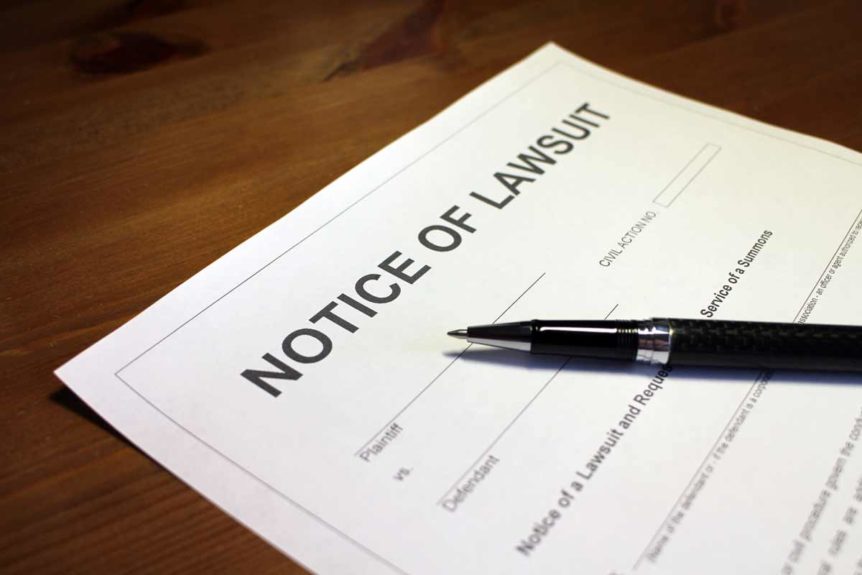When discussing the United States judicial system and the various laws, civil penalties, liability, justice, codes, and regulations set forth by the federal government, you tend to get opposing viewpoints on a number of issues that these topics invoke. While some people wholeheartedly agree with certain rules and penalties for making a fraudulent claim, others may argue that these federal law rules don’t make sense or the punishments are too harsh. These discussions can snowball into much larger issues when more and more people get involved and can even boil over to the point of mass protests and civil unrest both in and out of court.
Though these situations are somewhat few and far between, they are nonetheless an important and viable way to get unfair laws and regulations changed. No government is perfect and it’s up to individuals to come together as citizens to voice displeasure in certain government actions. One such issue that has been gaining momentum and seeing an observable increase in the number of people taking notice is the False Claims Act.
While this topic may be unfamiliar to some, it’s definitely in your best interest to learn about and understand the various nuances associated with this act. I say this because there has been an uproar of displeasure with some of the changes made to the False Claims Act, more specifically the penalties levied against those who are in violation of it.
This article will help guide you through these important issues as it will explain a little about the history of penalties associated with the Federal False Claims Act, how it will affect those intent to defraud and, more importantly, what is happening currently that has people protesting both in support, and disapproval of the changes being made. Not only will this information help you form an educated opinion on the topic, but it could also help protect you, or someone you know from being unfairly punished with what many believe are overly excessive penalties.

The Federal False Claims Act was enacted by President Abraham Lincoln in 1863 in response to claims of fraud and corruption by businesses supplying the Union army with weapons, and other such items during the Civil War. Needing help from its citizens, the United States government passed the act, which allowed people to sue those actively defrauding the government. The government would then share the monetary damages awarded with the person who initiated the investigation and punish those responsible.
The initial Federal False Claims Act penalty was that the guilty party had to pay double what the damages were found to be, as well as a $2000 fine for each false claim submitted against them. The money received was then split equally between the government and the person who filed the suit with each party receiving half of the money awarded.
In 1943, the United States government altered the Federal False Claims Act by reducing the amount of reward money given to whistleblowers. They also added a clause which allowed them to eliminate suits filed by people based on evidence that was already in the government’s possession even if they weren’t currently investigating the issue. These changes severely reduced the number of people willing to cooperate with the government as the incentives to do so were simply not worth the trouble.
Similar to the initial causes for enacting the Federal False Claims Act, in the late 1980s during the height of the Cold War, inaccuracies in defense contracting spending, along with multiple claims of billing fraud, led Congress to make another round of changes to the False Claims Act. Since the incentives to file a suit on the government’s behalf was not enough to persuade people with the information needed to prove the defense contracting fraud claims were true to come forward, the government was pretty much forced to make changes.
They did and amended the act giving 15% to 30% of the monetary damages to people whose cases were successful and also gave them protection from workplace retaliation. Another significant change that was enacted during this time was that monetary penalties for those guilty of defrauding the government are now to be held responsible for treble damages and payments for each claim in the amount of anywhere between $5,000 and $10,000. For those who are unaware of what treble damages refers to, it basically means that the government can triple the amount of damages being awarded to the plaintiffs if the case meets certain criteria. These include—but aren’t limited to—if the guilty party displayed willful intent in their violations and certain anti-trust and racketeering cases.
The addition of treble damages is a key reason why some people believe the government may be over-penalizing people and business who are subjected to them. To make matters worse a new round of changes in 2016 saw the False Claims Act penalties rise once again. These were not small changes as the payments for each claim was doubled from a $5,000 minimum payment to almost $11,000 and the max amount from $10,000 to $20,000.
The doubling of payments seems a bit much, but what is most concerning to people is that the treble damages clause gives the government the ability to significantly increase the amount of money it receives from those found guilty to the point of being overly excessive. In fact, there have been recent instances of judges ruling that the fines imposed on people guilty of defrauding the government were so astronomical that they were deemed unconstitutional. It’s rather alarming that the government would use the False Claims Act penalties to seek monetary amounts that are vastly disproportionate to the actual damages caused.
Of course, there are always going to be those in favor of harsh penalties for every person who breaks the law and also those who believe these excessive punishments are unjustifiable. There are certainly convincing arguments for both sides and currently, the debate has garnered the attention of many concerned citizens. Hopefully, this article provided you with enough information to become involved in the debate and further investigate the subject. It’s important to take an active stance on topics like this because it raises important questions regarding government abuse of power and much more.
